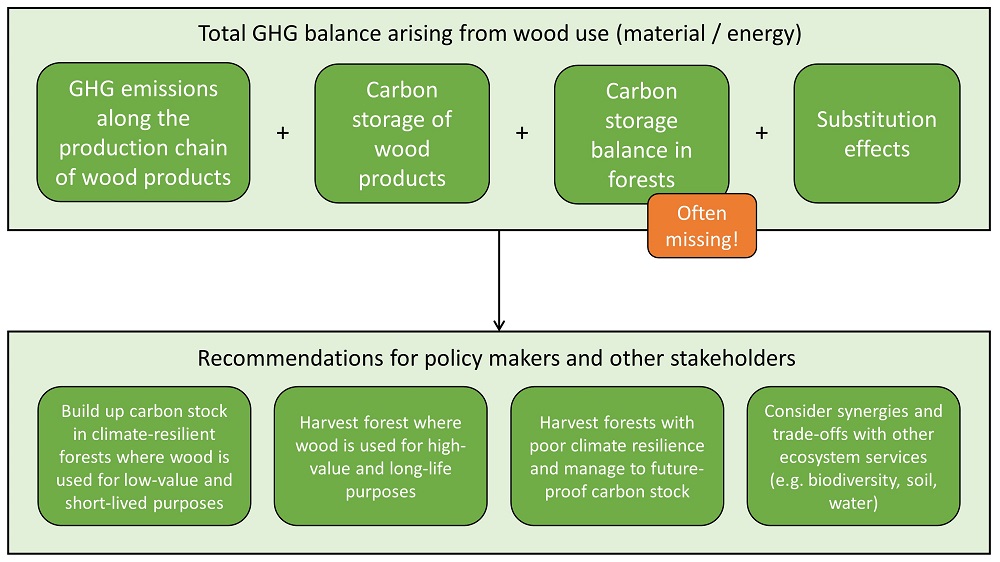The global carbon neutrality challenge places a spotlight on forests as carbon sinks. However, greenhouse gas (GHG) balances of wood for material and energy use often reveal GHG emission savings in comparison with a non-wood reference. Is it thus better to increase wood production and use, or to conserve and expand the carbon stock in forests? GHG balances of wood products mostly ignore the dynamics of carbon storage in forests, which can be expressed as the carbon storage balance in forests (CSBF). For Germany, a CSBF of 0.25 to 1.15 t CO2/m³ wood can be assumed. When the CSBF is integrated into the GHG balance, GHG mitigation substantially deteriorates and wood products may even turn into a GHG source, e.g. in the case of energy wood. Here, building up the forest carbon sink would be the better option. We conclude that it is vital to include the CSBF in GHG balances of wood products if the wood is extracted from forests. Only then can GHG balances provide political decision-makers and stakeholders in the wood sector with a complete picture of GHG emissions.

